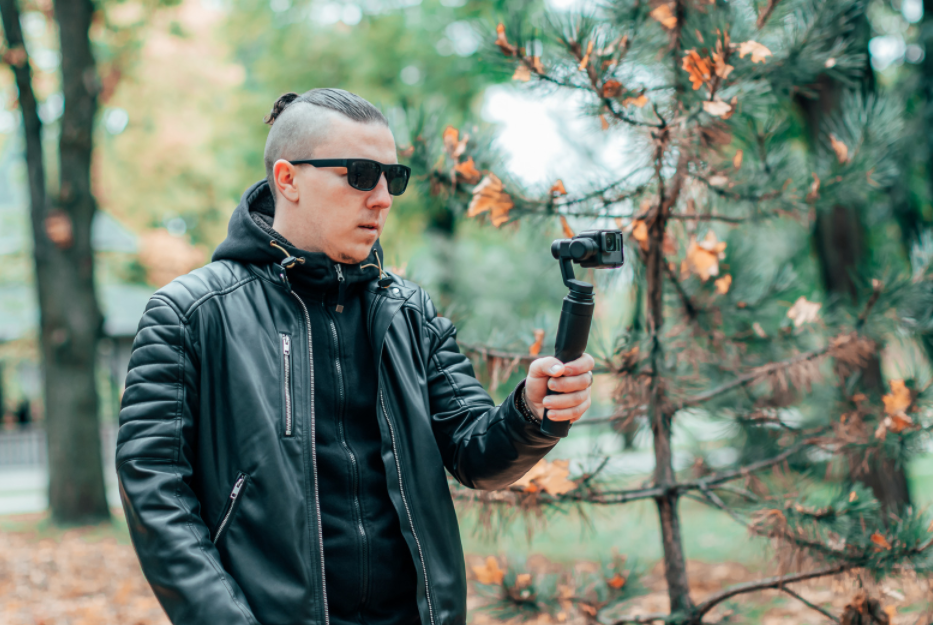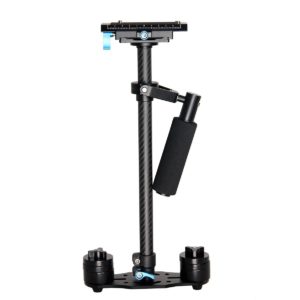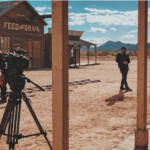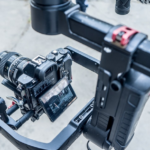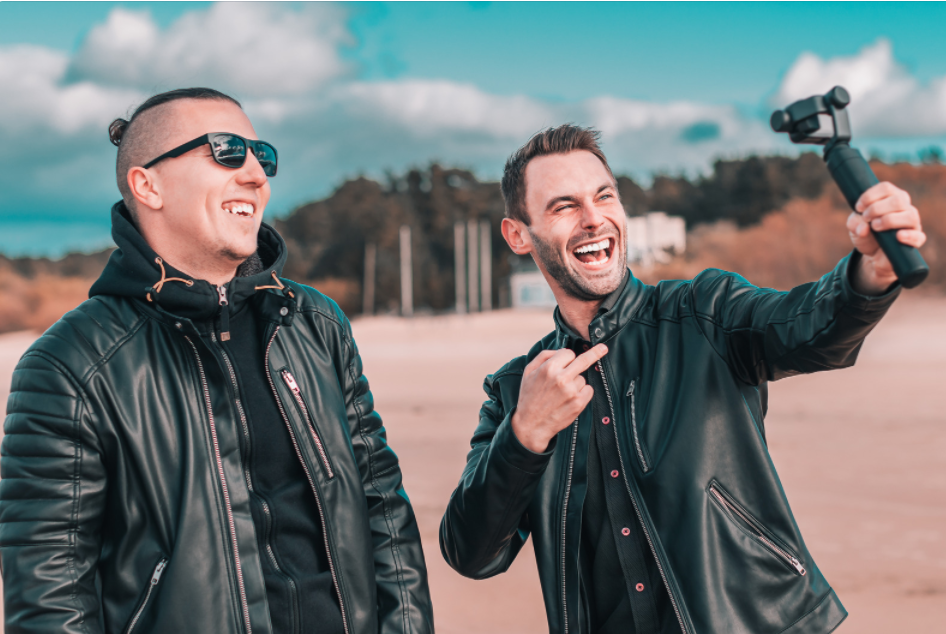
If you’re just getting into videography or staring out vlogging, you might wonder: what is the best video camera stabilizer out there? You don’t have to look any further because we wrote this guide for you! We want you to get clearer shots and footage, which is why we’re suggesting some good stabilizers.
Whether you have shaky hands or not, there will be times that the camera will get unstable due to external factors, such as the wind and other outside conditions. That’s why you’ll need the help of a video camera stabilizer to get the best shots possible – especially for professional use.
If you ever wonder how commercials, vlogs, and films have very smooth video footage – it’s because they use a camera stabilizer. Even with a budget camera, you can shoot a very smooth a
nd stable documentary, vlog, or film if you use a good video camera stabilizer for the job.
What device is used to stabilize a video camera?
A gimbal stabilizer is typically used to stabilize your video footage. The way it works is that it detects your motion using the 3 axes (pan, tilt, and roll) so that you get a more stabilized video capture. One example is the DJI Ronin-SC Camera Stabilizer, which can take up to 4.4 pounds of payload (camera).
Since w
e know DJI as a good brand when it comes to drones that are used by photographers and videographers alike, this 3-axis gimbal is good for nearly all kinds of cameras, which includes DSLR and mirrorless. At only roughly 2 pounds, it will be easy to carry around for different shooting sessions.
If you need a hands-free setup, however, we recommend the FLYCAM 5000 Camera Stabilizer, especially for bloggers who want to go into sports or adventures. This stabilizer is good for heavier video cameras because it has up to 11 pounds of payload, which is good for filmmakers or those with complex gear.
This stabilizer comes with a shock-absorbing arm to ensure you get smooth footage. Furthermore, the aluminum construction lessens its weight, making it easier to maneuver. Since it comes with an ergonomic padded vest, shooting without shaking won’t be a difficult task.
A stabilizer for those who have different types of cameras is the Zhiyun Crane M3 Gimbal, which is not only for big cameras but also for GoPro, smartphones, and smaller vlogging cameras. It has a full-color touch screen for tweaking the camera settings plus it has a wide variety of gimbal modes.
We like its quick-release system that enables you to lock and unlock with a release plate so you can switch your video camera easily – great for working with multiple camera setups. The gimbal stabilizer charges only about 2 hours and has a runtime of about 8 hours when fully charged.
However, if you want extra payload or weight capacity, we think that the Zhiyun Crane 3S is for you, which can support about 14.3 pounds so it’s good for heavier cameras and equipment. It has about a 12-hour runtime so it’s good for long hours of shooting as well.
When it comes to stability, it uses an algorithm system that is wind-resistant so it’s good for managing shots with moving objects and for sports. Since it has a 55-degree tilted roll axis, it will also give you a wider angle than most conventional stabilizers, which is also good for bigger cameras.
Contents
What makes a good camera stabilizer?
When choosing a good camera stabilizer, the first criteria you’ll need to look for are the weight of the stabilizer and the payload (the amount of weight it can take). The stabilizer weight can be somewhere between 2 to 10 pounds depending on the model and build.
On the payload, it is usually around 4 to 14 pounds and this depends on the type of camera you’re intending to use it with. For lightweight cameras, action cameras, and even your smartphone, you’ll be fine with a stabilizer that has about 4 to 6 pounds for its payload. However, if you have filmmaking cameras and bigger gear, you’ll want a much bigger payload or capacity.
The battery life is another feature you’ll want to know about since you might need to use the stabilizer and the camera for long hours of shooting. Lithium-ion batteries are the best way to go since they don’t lose charge quickly.
Some gimbal stabilizers also have extra modes that allow you to adjust quickly depending on the shooting style. What’s more, some of these gimbals have quick-release features that help you replace the video camera if you need to work with different types of cameras in one go.
How do I choose a camera stabilizer?
When you choose a camera stabilizer, you need to consider first the type of camera you’re using. If you’re new to vlogging, you might also want to check out “what camera do most vloggers use?” if you want to know which camera to start with.
Next, make sure that the camera stabilizer is quite easy to carry around. Typically, most video cameras are already heavy so if the stabilizer is already heavy on its own, it will be a pain to shoot with it and might even cause your hands to feel fatigued at the end of the filming session.
Last but not least, consider a camera stabilizer that suits your budget and needs – bigger cameras will require a heavier payload or weight capacity.
Which video stabilizer is best?
From our above-mentioned picks, we think that the DJI Ronin-SC Camera Stabilizer is the best video camera stabilizer. Since it’s good for most camera sizes up to 4.4 pounds, this 3-axis gimbal stabilizer will make your footage smooth without being too heavy to carry around (it’s only 2 pounds in weight).
We like this video stabilizer because it’s lightweight and it works just fine for a wide variety of cameras. Whether you’re an entry-level or want to step up your videography, this is a good gimbal stabilizer to use for your video camera.
Conclusion
To wrap it up, video camera stabilizers will help you get smooth and steady footage regardless of your videography skills. If you choose the right stabilizer depending on the camera you have and your gear setup, your output will look more professional. We hope you liked our suggested picks for the best video camera stabilizer!




